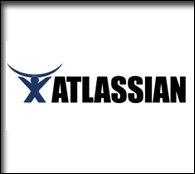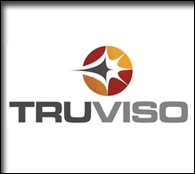Defrag and the Bazaar
by Eric Norlin on Jun.24, 2010, under Uncategorized
Yesterday’s post left us at the doorstep of “radical value propositions.” So, let’s dig in.
For the individual a “radical value proposition” isn’t really an overt thing. Individual’s adopt, like, push, cajole and laugh. They rarely perform cost/benefit analysis on a given solution. That doesn’t mean there aren’t “radical value propositions” that become inflection points in how individuals deal with data. Email, Facebook, Twitter — all could be pointed to as pretty radical value propositions.
For the organization, a “value proposition” takes on a bit more meaning. And a “radical” one means that the value derived is so over-the-top that implementation is nearly a no-brainer. In that context, let me quote at length from this article:
A few months ago the CIO was asked by the chief marketing officer to provide a way for marketing employees around the world to share and build documents together, and perform other collaborative tasks.
The CIO discussed the project with his application development group, then went back to the CMO and said “we can do this, in nine months at a cost of $14 million,” according to Whitehurst.
“The CMO says ‘what are you talking about? I was describing my daughter’s high school science project.’ And they were on Google Documents, sharing information, jointly editing documents, and they’re doing it for free. This is a true story. I may have been slightly off on the numbers, but a true story.”
That’s an amazing tale - and precisely why Defrag is focusing on “radical value propositions” this year. We have reached the point where the advance in “consumer-facing internet applications” is so fast that the enterprise IT department cannot possibly catch up. Enterprise *users* see a world where online collaboration is easy and cheap. What they experience inside of the enterprise is a traditional 9 to 36 month rollout that costs millions of dollars. That center will not hold.
The short-to-medium term will see a fracturing of possible solutions around this problem. Some enterprises will go the suite route. Some will go with Sharepoint and augment with point solutions. Some will simply go best of breed to attack specific vectors. Some may even “let the animals out of the cages” and just let employees use whatever the hell they want. There will be no “right” solution.
The “radical value proposition” will either present a sweeping solution (suite) at a reasonable investment price (think Sharepoint pricing), or it will follow the startup path — a cheap to free solution (or even freemium). The key is that the “radical” part of “value proposition” won’t be about *price*. It will be about the cost of installation, maintenance, and (most importantly) removal of the solution. The lower the cost load on the IT department to get the solution up and running, maintain it while running and remove it if it’s a failure, the more that solution is likely to get tried.
Just think “Google docs”: in the cloud, low investment, auto-maintenance, shut it off at a moment’s notice.
What we’re really witnessing here is the re-prioritization of the IT department. The command and control traditions of IT are breaking down amidst waves of SaaS/Cloud based offerings that target lines of business (versus horizontal organizational functions). And in that environment, IT is adapting by A) moving (or thinking of moving) non-mission critical apps to the cloud; B) racing to figure out security, compliance and identity management in the cloud; C) pushing new initiatives toward a future where pilots happen with minimal IT involvement (outside of account provisioning).
The larger picture is an even bigger disruption: the “IT department” (as a discrete unit) is being distributed (ie, it won’t be a discrete unit in the future). Even worse/better: it will be combined into other functions. Marketers become “application developers.” Salespeople become experts at the analytics/BI of social media. Operations personnel (finance, admin, etc) become the “go to guys” for “a specific app that’ll solve X.” “Information Technology” is no longer the protected realm of the priestly class, but the true bazaar that Eric Raymond’s open source manifesto foresaw years ago.
Information is everywhere. Individuals deal with information in complex, adaptive, near real-time ways (in groups and otherwise). Organizations will adapt because they won’t have a choice.
You’ll notice I’m not espousing some revamped 1960’s philosophy of the “flat organization.” Ugh. Of course there will be organizational structures. They may be more malleable, but they won’t be absent.
In the end, the radical value proposition makes the purchasing, implementation, maintenance, and removal of IT solutions something that almost anyone will be able to accomplish, as they need it. We all become “the IT department.”
In the meantime, the radical value proposition pushes toward that boundary. In the next post, I’ll begin to address how we’ll talk about this at Defrag, and the “creative tension” we’re looking to foster.









